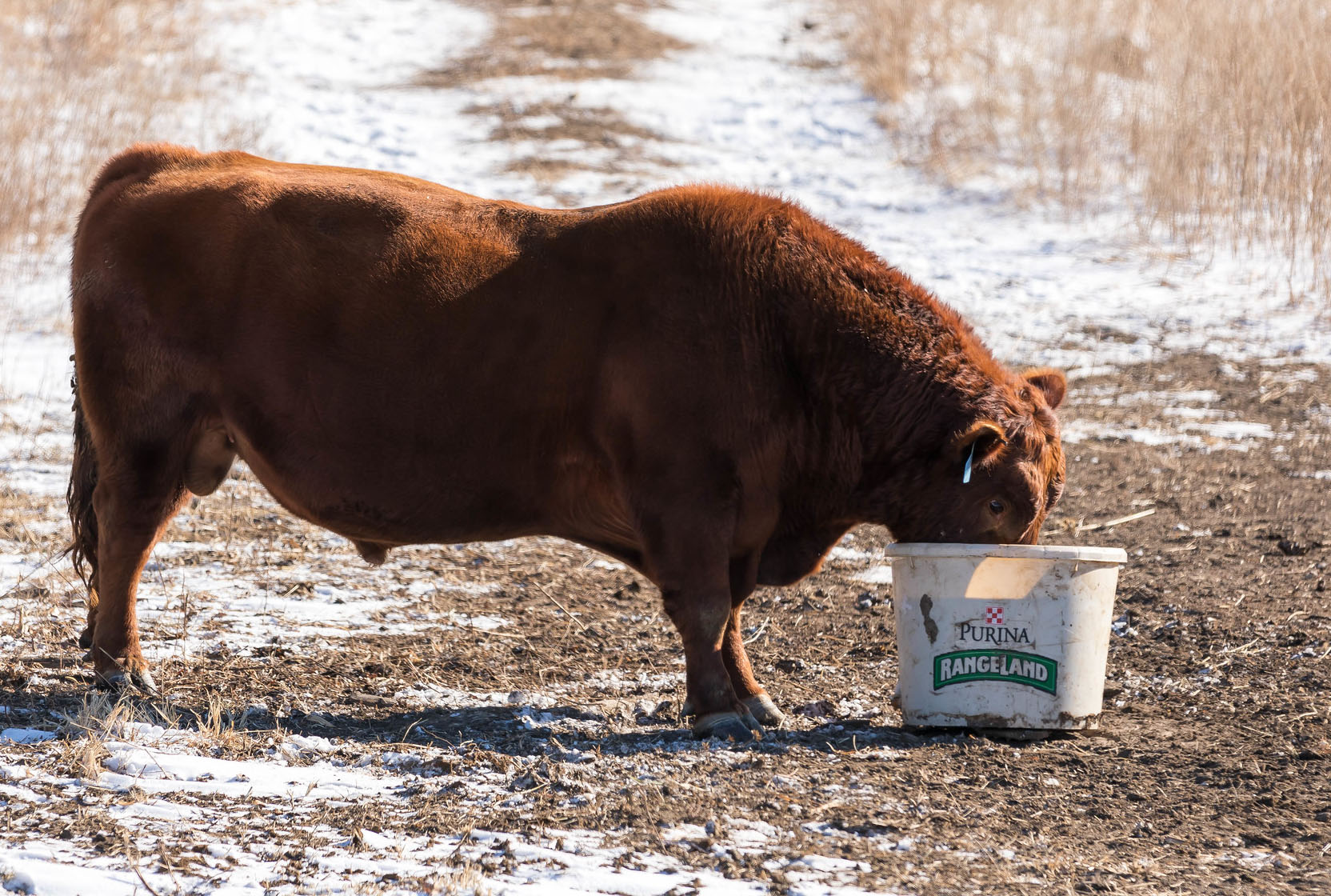
Bulls may need to be supplemented in the winter to maintain their body condition. | Download this photo.
Cattle Chat: Caring for the bulls in the winter
K-State beef cattle experts share how to best manage bulls during this season
Dec. 12, 2023
By Lisa Moser, K-State Research and Extension news service
MANHATTAN, Kan. — Many people know maintaining a healthy weight is one factor in an overall health plan, and weight maintenance is also important in the well-being of cattle, according to the Kansas State University Beef Cattle Institute experts who spoke on this topic on a recent Cattle Chat podcast.
For spring-calving cow herds, oftentimes beef nutritionists are focused on maintaining the cows in an optimum body condition through gestation and into the calving season, said K-State veterinarian Bob Larson. But he stressed that it is also important to make sure the bulls are managed to maintain a healthy weight.
“In the winter, a bull’s nutritional demands are similar to those of a cow in mid-gestation,” Larson said. “Poor quality forage alone will not meet his nutritional needs and so he may need to be given some protein supplement as well.”
Along with maintaining the bull’s weight, Larson recommends that producers manage them in a way that also protects their reproductive health from the winter weather.
“If bulls have had a rough winter, we may see scrotal frostbite and poor semen quality from those animals in the spring when we do their breeding soundness exams,” Larson said.
To keep this from happening, Larson recommends producers offer the bulls protection from the wind, allow them access to dry bedding and keep them away from the mud.
For producers who are introducing new bulls into the herd this winter, Larson said it is important to follow a biosecurity plan to reduce potential disease risk.
“I recommend producers quarantine all new animals for about 30 days so that they can watch for signs of illness during that time,” Larson said. “Oftentimes if a disease is going to break, it will show up in that time.”
He also offered one additional biosecurity tip.“It is also good to institute a vaccine program to make sure both the new cattle and the ones who have been in the herd for a while are following a similar health protocol,” Larson said.
To hear the full discussion, listen to the Cattle Chat podcast online or through your preferred streaming platform.

